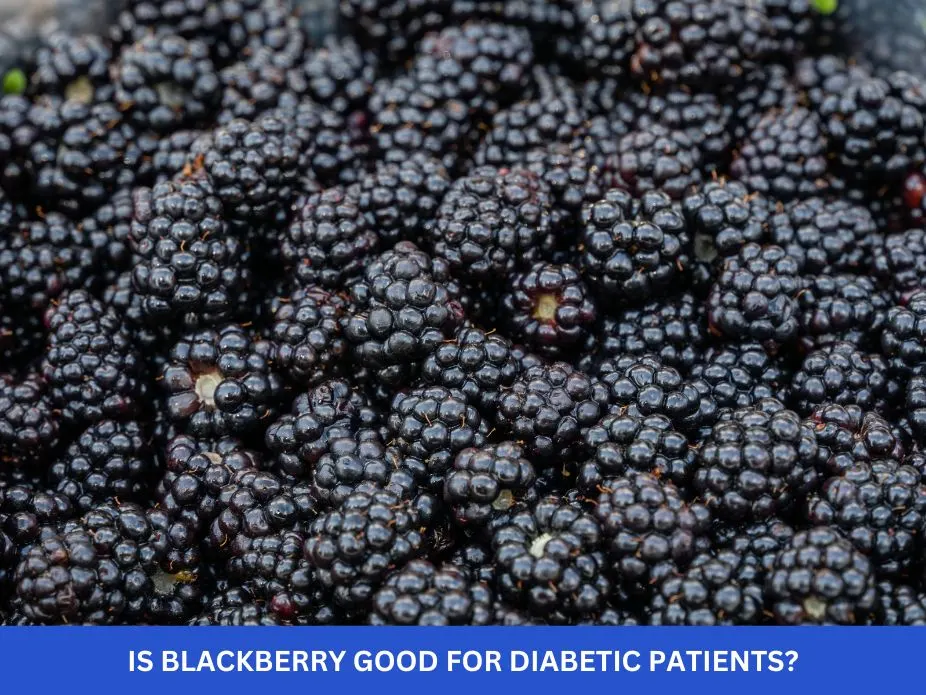Table of Contents
- Hypertension & Gestational Diabetes: What’s the Link?
- Managing High Blood Pressure During Pregnancy: A Guide
- Preeclampsia, Diabetes, and High Blood Pressure: Understanding the Risks
- Is High Blood Pressure During Pregnancy Increasing My Diabetes Risk?
- Protecting Yourself: Diabetes Prevention with High Blood Pressure in Pregnancy
- Frequently Asked Questions
- References
Discovering you’re pregnant is an exciting time, filled with dreams and anticipation. However, if you’re managing high blood pressure, it’s natural to have concerns, especially regarding potential complications. This blog post tackles a crucial aspect of pregnancy with hypertension: understanding the increased risks of developing gestational diabetes. We’ll explore the connection between Pregnant with High Blood Pressure: Understanding Diabetes Risks, providing you with essential information to navigate this journey with confidence and preparedness. Learning about these risks empowers you to work closely with your healthcare provider for the best possible outcome for both you and your baby. Let’s dive in!
Hypertension & Gestational Diabetes: What’s the Link?
The alarming statistic that over 60% of people with diabetes in India also have hypertension highlights a critical connection between these two conditions, especially pertinent during pregnancy. Understanding this link is crucial for expectant mothers, particularly in India and other tropical countries where these co-morbidities are prevalent. High blood pressure (hypertension) during pregnancy, known as gestational hypertension, significantly increases the risk of developing gestational diabetes.
Understanding the Interplay
Gestational diabetes, a type of diabetes that develops during pregnancy, and hypertension often share underlying factors. Insulin resistance, a condition where the body doesn’t use insulin effectively, plays a key role in both. Weight gain, poor diet, and a lack of physical activity can exacerbate insulin resistance, increasing susceptibility to both gestational diabetes and hypertension. The hormonal changes during pregnancy can further amplify these risks. For women in India and other tropical regions, pre-existing conditions and lifestyle factors often contribute to this complex interplay.
Managing the Risks
Regular prenatal check-ups are essential for early detection and management of both gestational diabetes and hypertension. Maintaining a healthy diet, engaging in regular exercise, and managing stress are vital for mitigating risks. Consulting with your doctor or a qualified healthcare professional about your individual risk factors and developing a personalized management plan is crucial. Early intervention can significantly reduce complications for both mother and baby. In India, accessing affordable and accessible healthcare is a major focus, and proactive management can significantly improve maternal and child health outcomes. For more information on managing hypertension during pregnancy, see our article on Pregnancy Hypertension: Causes, Risks, and Safe Management – Tap Health.
Taking Action
It is vital to remember that early detection and management are key to a healthy pregnancy, especially when dealing with the combined risk of hypertension and gestational diabetes. Don’t hesitate to consult your doctor if you have concerns or notice any symptoms. Understanding the link between hypertension and gestational diabetes is the first step towards ensuring a safe and healthy pregnancy. Remember that proactive health management is crucial for the well-being of both mother and child. For a comprehensive overview of hypertension and pregnancy, we recommend reading Hypertension and Pregnancy: What You Need to Know.
Managing High Blood Pressure During Pregnancy: A Guide
Pregnancy can be a joyous time, but for women with or at risk of developing gestational diabetes in India and other tropical countries, managing high blood pressure is crucial. High blood pressure (hypertension) during pregnancy, also known as gestational hypertension or preeclampsia, poses significant risks to both mother and baby. Understanding these risks and taking proactive steps is vital.
Understanding the Risks
For pregnant women with diabetes, maintaining optimal blood pressure is even more critical. The target blood pressure is generally below 140/90 mmHg, although some guidelines recommend aiming for below 130/80 mmHg for better pregnancy outcomes. Failing to control blood pressure within these ranges significantly increases the risk of complications such as premature birth, low birth weight, and even fetal death. In tropical climates, dehydration can exacerbate hypertension, making diligent hydration a key component of management.
Practical Steps for Blood Pressure Management
Regular monitoring is paramount. Frequent check-ups with your doctor are essential for tracking blood pressure and adjusting medication if necessary. Adopting a healthy lifestyle plays a crucial role. This includes following a balanced diet rich in fruits, vegetables, and whole grains, while limiting sodium intake. Regular, moderate exercise, approved by your doctor, helps regulate blood pressure. Stress reduction techniques like yoga and meditation can also be beneficial. In many Indian and tropical regions, access to healthcare may be limited; therefore, proactive lifestyle changes are even more critical. For additional tips on dietary choices, you might find our article on Top Foods That Help Reduce Hypertension During Pregnancy helpful.
Seeking Expert Advice
Remember, this information is for general knowledge and does not replace professional medical advice. Consult your doctor or a qualified healthcare professional immediately if you experience any concerning symptoms related to high blood pressure during pregnancy. Early detection and management are key to ensuring a healthy pregnancy for both you and your baby. Seek advice from local healthcare providers familiar with the specific challenges of managing hypertension in your region. Your well-being is paramount; prioritize regular checkups and open communication with your medical team. While lifestyle changes are key, you may also want to explore Natural Remedies to Manage High Blood Pressure in Pregnancy Safely after consulting with your doctor.
Preeclampsia, Diabetes, and High Blood Pressure: Understanding the Risks
Pregnancy complications like high blood pressure can significantly impact both the mother and child’s health, particularly in Indian and tropical countries where certain risk factors are prevalent. One major concern is the link between gestational diabetes and high blood pressure during pregnancy. High blood pressure, often manifesting as preeclampsia, increases the risk of developing gestational diabetes, a type of diabetes that develops during pregnancy. This is a serious concern because it can lead to complications during delivery and have long-term consequences for both mother and baby.
The Long-Term Impact of Gestational Diabetes
The implications extend beyond the pregnancy itself. Research shows that children born to mothers with gestational diabetes are seven times more likely to develop Type 2 diabetes later in life. This increased risk underscores the importance of proactive management of blood sugar levels during pregnancy, particularly in regions like India where Type 2 diabetes is already a significant health concern. Early detection and management of high blood pressure and gestational diabetes are crucial. This includes regular check-ups, adherence to prescribed medication and dietary changes, and close monitoring of blood pressure and blood sugar levels. For more information on the possibility of developing diabetes after pregnancy, read our article: Can You Develop Diabetes After Pregnancy?
Seeking Expert Care in India and Tropical Countries
In many Indian and tropical countries, access to quality prenatal care can be a challenge. It is vital to seek regular antenatal care from a qualified healthcare professional. They can assess your risk for gestational diabetes and high blood pressure, implement preventative measures, and provide personalized management plans to minimize complications. Don’t hesitate to ask questions and openly discuss your concerns with your doctor. Early intervention and consistent monitoring are key to ensuring a healthy pregnancy and a healthy future for both you and your baby. Regular health check-ups, even after delivery, are highly recommended to manage any lingering health issues and prevent the development of chronic diseases. If you’re concerned about prediabetes, learn more about potential reversals with our guide: Can I Reverse Prediabetes? Effective Strategies for a Healthier Future
Is High Blood Pressure During Pregnancy Increasing My Diabetes Risk?
Pregnancy brings many joys, but gestational hypertension (high blood pressure during pregnancy) can cast a shadow, especially concerning future health risks. A key concern for women in India and other tropical countries is the potential link between gestational hypertension and the development of type 2 diabetes. While not a guaranteed outcome, the connection warrants attention and proactive health management.
Understanding the Link
High blood pressure during pregnancy can indicate underlying insulin resistance, a precursor to type 2 diabetes. Insulin resistance means your body doesn’t effectively use insulin to regulate blood sugar levels. This condition is more prevalent in women of South Asian descent and other populations in tropical regions, increasing the risk of developing diabetes post-pregnancy. This risk is further compounded by factors like family history of diabetes, obesity, and unhealthy lifestyle choices. It’s important to remember that correlation doesn’t equal causation, but understanding this potential link is crucial. High blood sugar levels are also a concern; understanding normal blood sugar ranges is important, so if you’re experiencing elevated levels, you might want to check out information on Is 250 Blood Sugar Level Normal After Eating During Pregnancy? or Is a 300 Blood Sugar Level Normal After Eating During Pregnancy? to better understand what’s considered normal.
Taking Proactive Steps
Following a healthy diet rich in fruits, vegetables, and whole grains is vital. Regular exercise, even moderate activity like brisk walking, plays a significant role. Maintaining a healthy weight, both during and after pregnancy, is also crucial. Regular check-ups with your doctor are essential to monitor blood pressure and blood sugar levels. Early detection and management are key to mitigating long-term risks. Women with a family history of diabetes should be especially vigilant. Remember, women with diabetes have a 40% higher risk of heart disease compared to men with diabetes, highlighting the importance of proactive healthcare.
Seeking Support in India and Tropical Countries
Access to quality healthcare varies across India and other tropical regions. Actively seek out pre- and postnatal care from qualified healthcare professionals. Don’t hesitate to discuss your concerns about diabetes risk with your doctor or midwife. Many community health programs and support groups provide valuable resources and guidance for women managing their health during and after pregnancy. Taking charge of your health is the best step you can take to ensure a healthy future for yourself and your child.
Protecting Yourself: Diabetes Prevention with High Blood Pressure in Pregnancy
Pregnancy with high blood pressure presents unique challenges, increasing the risk of developing gestational diabetes and, later in life, type 2 diabetes. The good news is that up to 80% of Type 2 diabetes cases can be delayed or prevented through lifestyle changes. This is especially crucial for women in India and tropical countries, where diabetes prevalence is rising.
Managing Blood Pressure and Preventing Diabetes
Maintaining healthy blood pressure during pregnancy is paramount for preventing diabetes complications. This involves regular monitoring, adhering to prescribed medication (if necessary), and adopting a healthy lifestyle. This includes a balanced diet rich in fruits, vegetables, and whole grains, common and accessible in many Indian and tropical regions. Regular, moderate exercise, even short walks, significantly contributes to better blood sugar and blood pressure control. Limiting processed foods, sugary drinks, and excessive salt intake are crucial steps.
Lifestyle Modifications for Lasting Health
Post-pregnancy, continuing healthy habits is key to long-term diabetes prevention. Focus on consistent blood pressure and blood sugar monitoring. Consider consulting a nutritionist or diabetes educator for personalized guidance on dietary choices suitable for your region and cultural preferences. Remember, small changes accumulate to make a significant difference in reducing your risk of developing diabetes. Seek support from family, friends, and local health programs to maintain motivation and accountability. For more information on managing diabetes as you age, see our article on Managing Diabetes as You Age: Challenges and Solutions.
Taking Action in Your Community
In India and other tropical countries, community-based initiatives and support groups focused on diabetes prevention can be invaluable resources. Connect with local health clinics and organizations to learn about available programs and educational resources. Taking proactive steps towards a healthier lifestyle can significantly lower your risk of developing diabetes and improve your overall well-being. Your health journey is an investment in a healthier future for you and your family. Learning to Protect Your Heart from Diabetes: 5 Essential Steps is also crucial for long-term health.
Frequently Asked Questions on High Blood Pressure Pregnancy
Q1. What is the relationship between gestational hypertension and gestational diabetes?
Gestational hypertension (high blood pressure during pregnancy) and gestational diabetes (high blood sugar during pregnancy) often occur together, especially in tropical areas like India. They share risk factors such as insulin resistance, weight gain, poor diet, and lack of exercise, all of which are worsened by pregnancy hormones.
Q2. How can I reduce my risk of developing gestational hypertension and diabetes during pregnancy?
Maintaining a healthy lifestyle is key. This includes eating a balanced diet, getting regular exercise, managing stress, and attending all your prenatal checkups for early detection. These steps can significantly lower your risk of both conditions.
Q3. What are the potential long-term consequences of gestational diabetes?
For the baby, gestational diabetes increases the risk of developing type 2 diabetes later in life. For the mother, it can increase the risk of developing type 2 diabetes in the future.
Q4. How important are regular prenatal checkups in managing these conditions?
Regular prenatal checkups are crucial for early detection of both gestational hypertension and gestational diabetes. Early detection allows for timely intervention and management, significantly reducing potential complications for both mother and baby.
Q5. What role does access to healthcare play in managing these conditions?
Access to affordable and accessible healthcare is vital, particularly in regions where these conditions are common. Regular checkups and personalized management plans from healthcare professionals are essential for optimal outcomes.
References
- A Practical Guide to Integrated Type 2 Diabetes Care: https://www.hse.ie/eng/services/list/2/primarycare/east-coast-diabetes-service/management-of-type-2-diabetes/diabetes-and-pregnancy/icgp-guide-to-integrated-type-2.pdf
- Diabetes Mellitus: Understanding the Disease, Its Diagnosis, and Management Strategies in Present Scenario: https://www.ajol.info/index.php/ajbr/article/view/283152/266731




